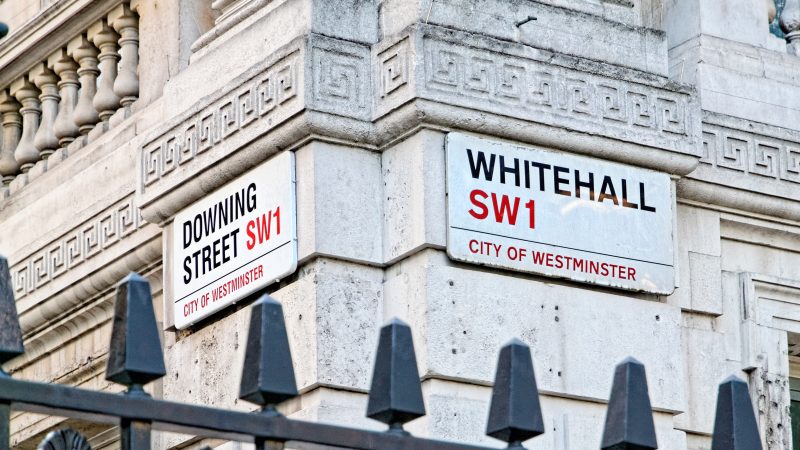
New governments need to make a splash, to make changes, to make their mark. The first 100 days and all that. With their success in the local elections earlier this month, Labour seems closer to power than it has been at any point in more than a decade. And the party is clearly working hard to appear ready for government: Rachel Reeves has been on the notorious prawn cocktail offensive in the City of London. Wes Streeting and Keir Starmer publicly recognise the failings in the NHS. The Brown review is an ambitious manifesto for radical decentralisation and the redistribution of power throughout the UK.
But will they be able to drive through the real, substantive changes they are planning? Are the management structures at the top of departments equipped to implement significant policy changes quickly and efficiently, to actually improve public services?
Labour has long recognised the need for reform in Whitehall
Ask yourself this question: after more than 13 years of Tory rule, can you name one department which has driven through any real programme of reform? I can hear the scorn with which that question is answered by readers of this website. But then ask the same question about the 13 years of New Labour government from 1997? Which great reforms are Blair and Brown, with their large parliamentary majorities, most proud of?
After all, many senior Labour figures have recognised that the machinery of government does not work properly. Blair finding that pulling the levers of government was fruitless or the party under his leadership speaking of the need for reform in Whitehall to make it more “effective and entrepreneurial”. Or John Reid describing the Home Office as “not fit for purpose”. Or John Prescott’s failed “war on the motorist”.
Today, Labour does have an ambitious programme of reform. Of its ‘five missions’, three rely heavily on departmental reform: the NHS, safer streets and education. But the actual machine of government was never meaningfully reformed by Blair and Brown or by any of the five Tory PMs since then. So how, if Labour does win the next election, can they have any confidence that their plans will be implemented effectively?
Government machinery must change to meet new challenges
The good news is that the Labour Party leadership appears to be aware of the problem. Alongside the five missions, they have also set out their vision for how they would make Whitehall more “agile, empowering and catalytic”. But they need to go one step further and recognise that the nature and role of government has evolved far beyond its capabilities. For the very structure of Whitehall remains largely unchanged since it was first designed in the late 19th century.
The UK now faces many complex long-term challenges – climate change, an ageing population, poor quality public services, the productivity challenge, to name a few. As such, the machine that manages the response to these challenges should evolve and an incoming government – of whatever colour – should acknowledge two key issues.
These are: 1) the mismatch of experience and skills of ministers and permanent secretaries to the requirement of their roles; and 2) the loss of institutional memory, knowledge and experience through ministers and senior civil servants frequently changing roles and departments.
As it stands, ministers and permanent secretaries – nearly always with limited management experience – have the impossible task of managing organisations larger than most FTSE 100 corporations. And they stay in office for under a couple of years on average. Since 2010, the Department for Education has had a new Secretary of State every 17 months. How can they possibly get anything done?
Departments could benefit from a new ‘CEO-style’ figure
In our new report, Effective Management, we set out how we think this could be addressed through the introduction of a CEO-style position who is responsible for the management of government departments. This would include implementing Labour’s “new approach to governing”, freeing up ministers, supported by the permanent secretary, to focus on strategy and policymaking. Meanwhile, the CEO, recruited externally, should be totally responsible for all operation, management and delivery of government issues. Not policy. Just the implementation of policy.
It is a radical but achievable reform. Professional, modern management systems are already used at the top of most charities, business, local governments and NHS trusts. Variations of this approach are used in parliamentary democracies like New Zealand and Australia, too.
It may be tempting for a future Labour government to put government reform on the back burner and to focus on more pressing, eye-catching matters. But that would be a mistake. Reform of central government is the key to implementing its manifesto promises. The restructuring of Whitehall is a prerequisite for success.



More from LabourList
‘National flags and identity can be inclusive – we’re right to embrace them’
Revealed: Claims of bullying, misogyny and harassment in Young Fabians
‘Sunak’s claim of a ‘sick note culture’ is immoral and deeply flawed’